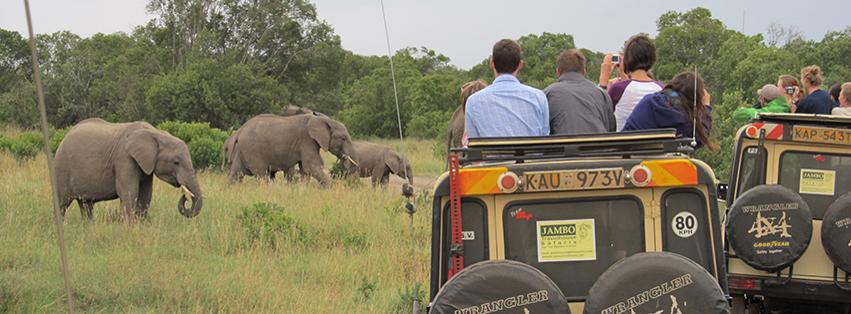
East Africa Field School
Tanzania and Kenya
4-8 weeks, 6-12 credit hours
Director - Jennifer Coffman | coffmaje@jmu.edu
Designed to serve majors from many different disciplines, JMU’s East Africa Field School offers a unique opportunity to learn about peoples, cultures, and environments of contemporary Tanzania and Kenya through direct interaction. The East Africa Field School incorporates site visits, homestays, lectures/class discussions, readings, and a variety of other assignments to provide breadth and depth on the following:
-
Kiswahili– an official language of Tanzania and Kenya
-
Histories and Cultures– diversity of cultures in East Africa, impacts of colonialism, meanings of post-colonialism, education and ways of “knowing,” nationalism, and development
-
Human-Environment Interactions and the Quest for Sustainability– dimensions of rural life, impacts of major cities, varied land uses and pressures on the land and water bodies, use and potential of renewables
Learn more about the East Africa Field School Program.
Ghana Summer Program
4 weeks, 3-9 credit hours
Director - David Owusu-Ansah | owusuadx@jmu.edu
The Ghana Summer Program, the first Africa-based summer study abroad program at JMU, was created in 1996. We have taken students on this four-week (6 credit hour) program every year since. We added a two-week internship component (3 credit hours) to the summer experience in 2009. Ghana is an established democratic African country with long ties to the United States.
Learn more about the Ghana Summer Program.
Interdisciplinary Engagement at Madison Camp--Kenya
3 weeks, 6 credit hours
Directors - Michelle Cude and Lisa Schick | cudemd@jmu.edu and schicklc@jmu.edu
Join us in exploring the magic of East Africa in this unique interdisciplinary program. This study abroad opportunity gives you a chance to gain cross cultural skills, make global friendships, meet personal and academic growth goals, and experience life in a much more focused, simplified, relational way.
While you will be challenged to step out of your comfort zone, you will also be rewarded with a greater understanding of global unity, disparity, relationship, humanity, charity, generosity, and culture. The special setting in a rural part of Kenya, 3 hours from Nairobi, allows you to taste Maasai culture in a way that will have you convinced you just walked into a Nat Geo documentary!
This experience will be of interest to those exploring all levels of education, health sciences, social justice, social entrepreneurship, NGOs, art/art education, occupational therapy, engineering, conservation, drama, environmental issues, and many more. The quality experiences will be focused on Nasaruni Academy, a campus of 137 Maasai girls where we will be staying in the Madison camp adjacent to the school, surrounded by herds of cattle and sheep and goats. You will be invited to sample village life up close and personal, experience a safari in the world renowned Maasai Mara game reserve.
Learn more about Madison Camp-Kenya.
The following program is eligible for credit by course directive. Contact the program director for more information:
Honors Seminar: Dominican Republic
________________________________________
Please visit the Center for Global Engagement website for study abroad applications. Images courtesy of CGE.
